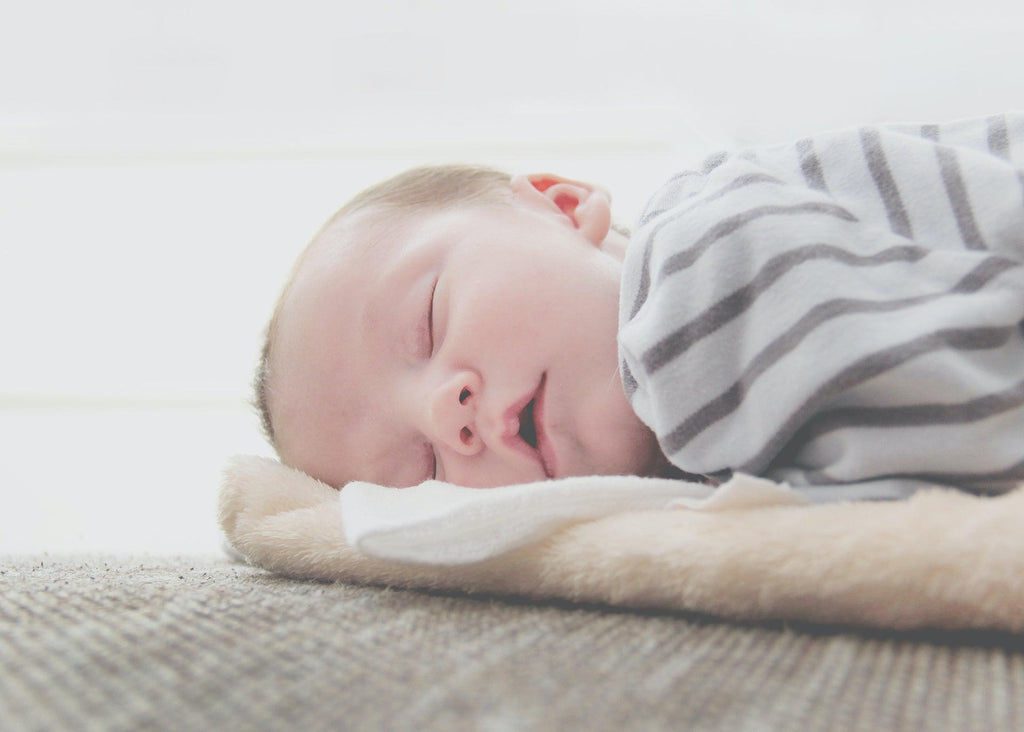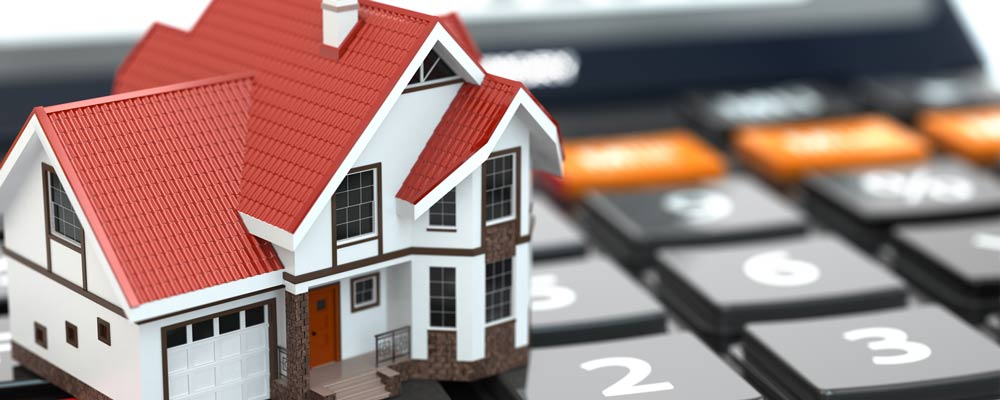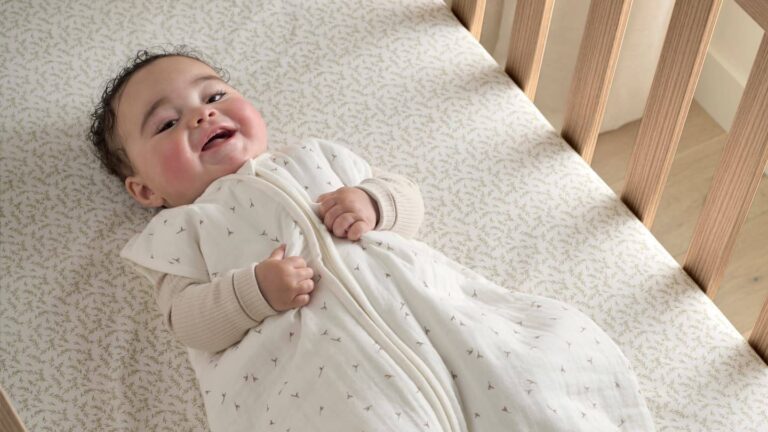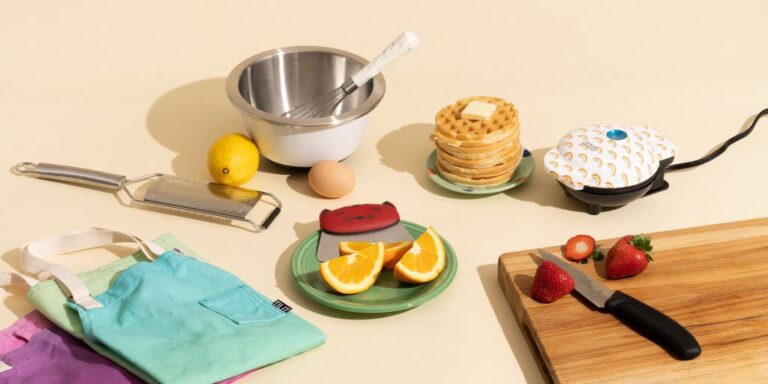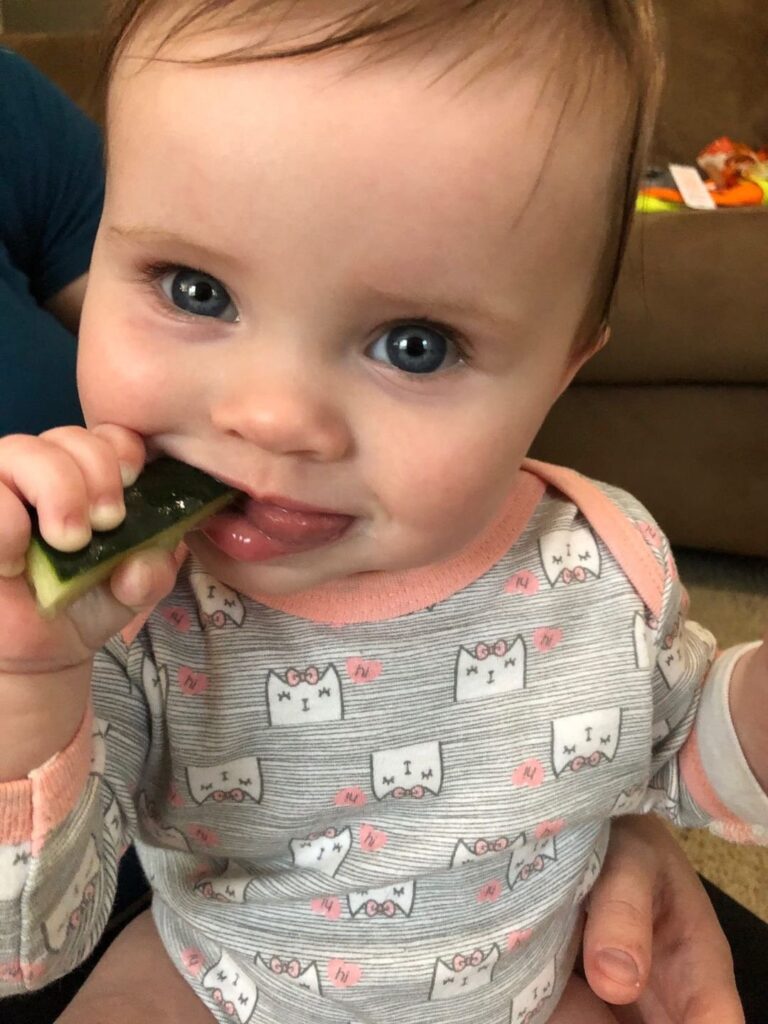Is Weighing Baby at Home Accurate? Unveiling the Truth
Weighing your baby at home using most home scales is not very accurate.
Importance Of Accurate Baby Weight Measurement
Accurate baby weight measurement is crucial for monitoring a baby’s growth. Weighing the baby at home can provide a fairly accurate estimate if done correctly, by undressing the baby and weighing them while holding them, and then weighing yourself separately.
Understanding The Significance Of Accurate Baby Weight Measurement
Accurate baby weight measurement plays a crucial role in monitoring the health and development of infants. It provides healthcare professionals and parents with valuable information about the child’s growth trajectory and overall well-being. However, many parents wonder about the accuracy of weighing their baby at home.Impact Of Accurate Weight Measurement On Child Health Assessment
Accurate weight measurement is essential for proper child health assessment. It helps identify any potential growth abnormalities or nutritional deficiencies and enables healthcare providers to intervene promptly. Reliable weight data allows healthcare professionals to track the baby’s progress and make informed decisions regarding feeding practices, dietary adjustments, and potential medical interventions if required.But how accurate is weighing your baby at home? While weighing your baby at home can provide an estimate of their weight, it may not be as precise as measurements conducted in a clinical setting. Factors such as the type and calibration of the scale and the baby’s movement or position during weighing can introduce variations. Therefore, it is recommended to use a reliable and accurate baby scale for more precise measurements.
There are a few techniques you can employ to help ensure more accurate weight measurements at home. If your baby can sit unaided, you can place them directly on the scales. However, if your baby cannot sit unaided, it is advisable to lay them on their back on the scales, making sure they are not holding onto anything that could affect the weight. Take note of the weight, remove your baby from the scales, and redress them. This method helps eliminate unnecessary factors that could influence the weight measurement.
It is important to note that accurate weight measurement goes beyond mere numbers. It allows healthcare professionals to assess the baby’s growth patterns, compare the measurements against established growth charts, and identify any potential issues that may require further evaluation.
Summarizing, accurate baby weight measurement is of utmost importance for monitoring the child’s health and development. It provides valuable insights into their growth trajectory, helps detect potential issues early on, and empowers parents and healthcare providers to make informed decisions regarding nutrition and overall well-being. While weighing your baby at home can provide an estimate, it is recommended to use a reliable baby scale for more precise measurements.
Factors Affecting Accuracy Of Home Baby Weighing
Factors affecting the accuracy of home baby weighing include ensuring the baby is not holding onto anything that may affect the weight, placing the baby on the scales properly, and recording the weight correctly. It is also important to use an accurate and reliable scale for the most precise measurements.
Highlighting The Factors That Can Influence The Accuracy Of Home Baby Weighing
When it comes to weighing your baby at home, it’s important to consider certain factors that can affect the accuracy of the results. By understanding these factors and taking them into account, you can ensure that you get the most reliable measurements possible. Factors such as environmental conditions and improper techniques can greatly impact the accuracy of home baby weighing. Let’s explore these factors in more detail.Discussing The Role Of Environmental Factors In Weight Measurement
The environment in which you weigh your baby can play a significant role in the accuracy of the measurements. Factors such as the location of the scale, the stability of the surface, and the temperature of the room can all affect the weight readings. It’s important to place the scale on a flat and stable surface to avoid any fluctuations or instability during the weighing process. Additionally, extreme temperature changes in the room can cause the scale to expand or contract, leading to inaccurate readings. Therefore, it’s crucial to ensure that the room is at a consistent temperature when weighing your baby.Exploring The Impact Of Improper Techniques On The Accuracy Of Results
Using improper techniques when weighing your baby can also significantly impact the accuracy of the results. For example, if your baby is not positioned correctly on the scale or is holding onto something during the weighing process, it can affect the weight readings. To ensure accurate measurements, it’s important to lay your baby on their back on the scale if they are unable to sit unaided. Make sure they are not holding onto anything that could influence the weight reading. It’s also essential to take note of the weight before removing your baby from the scale to redress them. By being mindful of these improper techniques and taking the necessary precautions, you can ensure more accurate results when weighing your baby at home. In conclusion, several factors can influence the accuracy of home baby weighing. Environmental factors such as the location and temperature of the room can impact the weight measurements. Additionally, using improper techniques, such as not positioning your baby correctly or allowing them to hold onto something, can also affect the accuracy of the results. By understanding these factors and adhering to proper weighing techniques, you can obtain more accurate measurements of your baby’s weight at home.Pros And Cons Of Home Baby Weighing
Weighing your baby at home can provide you with several benefits, allowing you to keep track of their growth and development. However, it also comes with a few potential drawbacks that you should consider. In this section, we will analyze the benefits of weighing your baby at home, as well as highlight the potential drawbacks you may encounter.
Analyzing The Benefits Of Weighing Baby At Home
There are several advantages to weighing your baby at home:
- Convenience: Weighing your baby at home eliminates the need for frequent visits to the doctor’s office or clinic. This convenience saves you time and reduces the potential exposure to germs and infections.
- Cost-effective: Investing in a quality baby scale upfront can save you money in the long run, as you won’t need to pay for each visit to the doctor just to weigh your baby. It provides a cost-effective solution to monitor your baby’s growth.
- Regular monitoring: By weighing your baby at home, you can monitor their weight regularly. This allows you to detect any unusual weight gain or loss, which can be an early indicator of potential health issues.
- Peace of mind: As a parent, seeing your baby’s weight consistently increasing can provide peace of mind and reassurance that they are growing and developing properly.
Highlighting The Potential Drawbacks Of Home Baby Weighing
Despite the benefits, there are also a few potential drawbacks to consider when weighing your baby at home:
- Accuracy concerns: Home baby scales may not be as accurate as those used in medical facilities. Factors such as movement, clothing, and scale calibration can affect the accuracy of the measurements.
- Technical challenges: Operating a baby scale at home may require some technical knowledge, especially when it comes to calibration and measurements. Improper handling or incorrect settings can lead to inaccurate readings.
- Missing professional expertise: Weighing your baby at home means missing out on professional expertise. Doctors and pediatricians can offer valuable insights and interpretation of the weight data, providing guidance based on your baby’s unique needs.
- Potential stress: For some parents, constantly monitoring their baby’s weight at home can lead to unnecessary stress and anxiety. It’s important to strike a balance between being proactive and not obsessing over every slight fluctuation in weight.
While weighing your baby at home provides convenience and regular monitoring opportunities, it’s essential to consider the accuracy concerns and potential drawbacks. Striking a balance between home baby weighing and seeking professional advice can help ensure the best care for your little one.
Tips For Accurate Baby Weight Measurement At Home
Accurately measuring a baby’s weight is important to monitor their growth and development. While medical professionals typically use specialized scales in clinics, it is possible to weigh your baby at home as well. However, it is crucial to follow proper techniques and use standardized scales to ensure accurate measurements. In this section, we will provide practical tips for ensuring accurate baby weight measurements at home, discuss the importance of using standardized scales and proper techniques, and explore alternative methods for estimating baby weight at home.
Providing Practical Tips For Ensuring Accurate Baby Weight Measurements At Home
To ensure accurate baby weight measurements at home, consider the following practical tips:
- Use a dedicated baby scale: Investing in a reliable and accurate baby scale specifically designed for weighing infants is highly recommended. These scales usually come with helpful features such as a built-in tray or a removable basket to keep the baby secure during the weighing process.
- Choose a stable surface: Place the baby scale on a stable and flat surface, such as a hard floor. Avoid using carpets or uneven surfaces, as they can affect the accuracy of the measurements.
- Undress your baby: Remove your baby’s clothing, including diapers, before weighing them. This ensures that the weight measurement includes only the baby’s body weight, without any additional items.
- Hold your baby securely: When weighing your baby on a scale that requires you to hold them, ensure a secure and comfortable grip. Use one hand to support their bottom and the other hand to support their head and neck.
- Weigh at consistent times: For accurate tracking of your baby’s weight, try to weigh them at the same time each day or week. This helps in detecting any sudden changes or fluctuations in their growth.
Discussing The Importance Of Using Standardized Scales And Proper Techniques
Using standardized scales and proper weighing techniques is crucial to obtain accurate baby weight measurements at home. Standardized scales have been calibrated to provide precise and reliable readings, ensuring consistency and accuracy.
When using a baby scale, make sure to follow these proper weighing techniques:
- Place your baby gently on the scale’s tray or within the basket, ensuring their body is evenly distributed.
- Ensure your baby is calm and not moving during the weighing process. This may require some soothing techniques or assistance from another caregiver.
- Wait for a stable reading: Scales often take a moment to settle on a final weight measurement. Make sure to wait until the display stabilizes before recording the weight.
By using standardized scales and adhering to proper techniques, you can increase the accuracy and reliability of baby weight measurements at home.
Exploring Alternative Methods For Estimating Baby Weight At Home
While using a dedicated baby scale is the most accurate method for weighing your baby at home, there are alternative methods that can provide a rough estimation of their weight. These methods may be useful in situations where a baby scale is not available or practical:
| Method | Description |
|---|---|
| Weighing yourself and the baby | Step on a scale while holding the baby and record that weight. Then, set the baby down and weigh yourself again. The difference in weight is an estimation of the baby’s weight. |
| Comparing against household objects | Using known weights of household items, such as bags of flour or weighted dumbbells, try to find an object with a similar weight to your baby. This can provide a rough estimation of their weight. |
While these alternative methods may not be as accurate as using a dedicated baby scale, they can still offer some insight into your baby’s weight if used with caution and in conjunction with regular professional weight measurements.
Comparison Of Home Baby Weighing Vs. Professional Weighing
When it comes to monitoring the growth and development of your baby, weighing them regularly is essential. Traditionally, parents relied on professional weighing at healthcare facilities to track their baby’s weight. However, with the advancement in technology, home baby weighing has become increasingly popular. But the burning question remains: How accurate is weighing a baby at home compared to professional weighing?
Evaluating The Accuracy And Reliability Of Home Baby Weighing Compared To Professional Weighing
Accuracy and reliability are crucial when it comes to measuring your baby’s weight. Let’s take a closer look at how both methods stack up:
Advantages And Limitations Of Home Baby Weighing
Home baby weighing offers several advantages for parents who prefer to monitor their baby’s weight in the comfort of their own home. Here are some of the pros and cons:
Advantages:
- Convenience: With a home baby scale, you can track your baby’s weight at any time without having to schedule appointments or leave your house.
- Cost-effective: Investing in a home baby scale can save you money in the long run, as you won’t need to pay for professional weighing services.
- Privacy: Some parents prefer the privacy of weighing their baby at home instead of in a public healthcare facility.
Limitations:
- Accuracy: While most home baby scales boast high accuracy, there is still a margin of error that can affect the precision of the measurements.
- User error: Incorrect usage of the scale or failure to follow proper weighing techniques can lead to inaccurate readings.
- Calibration: Regular calibration of the home baby scale is essential to ensure accurate measurements. Neglecting this can compromise the reliability of the scale.
Advantages And Limitations Of Professional Weighing
Professional weighing, typically conducted at healthcare facilities, also has its fair share of pros and cons. Take a look:
Advantages:
- Accuracy: Healthcare providers use calibrated and precise weighing equipment, ensuring accurate measurements of your baby’s weight.
- Expert guidance: Professionals can provide expert advice and support based on your baby’s weight, assisting you in understanding their growth pattern.
- Medical record integration: Professional weighing can easily be incorporated into your baby’s medical records, allowing for comprehensive monitoring and analysis.
Limitations:
- Appointment scheduling: Professional weighing requires scheduling appointments and adhering to their availability, which may not always be convenient for busy parents.
- Cost: Depending on your healthcare coverage, professional weighing services may come with additional costs.
- Travel and waiting time: Visiting healthcare facilities for weighing sessions can be time-consuming, especially if there are long waiting times.
Considering the advantages and limitations of both home baby weighing and professional weighing, it’s important to make an informed decision that suits your preferences and circumstances. Whether you choose to weigh your baby at home or opt for professional weighing, regular monitoring of their weight remains crucial for their overall health and development.

Credit: www.amazon.com
Frequently Asked Questions On How Accurate Is Weighing Baby At Home
Can I Weigh My Baby At Home?
Yes, you can weigh your baby at home. If your baby can sit unaided, you can sit them on the scales. If not, lay your baby on their back without holding onto anything that may affect the weight. Take note of the weight, redress your baby, and then remove the baby from the scales.
How Can I Estimate My Baby’s Weight At Home?
To estimate your baby’s weight at home, undress your baby and step on a scale while holding them. Record that weight. Then, set your baby down and weigh yourself. The difference between the two weights is your baby’s estimated weight.
Remember to use the same scale each time for consistency.
How Accurate Is Weighing Baby Before And After Feeding?
Weighing a baby before and after feeding is not a very accurate method. Infant weighing scales may not be sensitive enough to detect small changes in weight after feeding. Therefore, it is not recommended for clinical use.
Do You Weigh Baby Before Or After Feeding?
Weigh your baby before feeding for an accurate measurement. Lay them on their back on the scale, ensuring they’re not holding onto anything. Then, take note of the weight. After measuring, redress your baby.
Conclusion
Weighing your baby at home can provide fairly accurate results if done correctly. It is important to undress the baby completely and ensure they are not holding onto anything that may affect the weight. Taking note of the weight and comparing it consistently on the same scale can yield reliable measurements.
However, it is always recommended to consult with a healthcare professional for accurate and regular weight monitoring to ensure the baby’s healthy growth and development.

